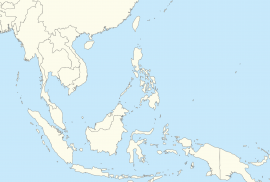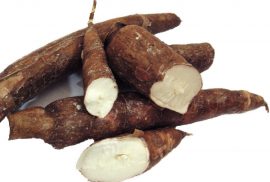Collaborating with Center for Rural and Regions Studies UGM and Strategic Alliance for Poverty Reduction, this research was conducted to understand the dynamics that occur in the field associated with poverty reduction programs to find the difficulties encountered in various programs implemented. From this research, it is expected to find alternative strategies that can be used by related stakeholders to jointly improve the effectiveness of poverty reduction programs so that the target of reducing social problems due to poverty can be achieved as expected.
January
SEATIDE (Integration in Southeast Asia: Trajectories of Inclusion, Dynamics of Exclusion) is an EU FP7-funded project that will make use of a field research based approach to study processes of integration and exclusion in Southeast Asian (SEA) countries. Led by the Ecole francaise d’ Extreme-Orient (EFEO), it will benefit from the resources and expertise of major Asian Studies institutions in SEA and Europe, as well as the unique EFEO network of 10 field centres located in SEA.
- Main scientific objective
Integrative processes offer the promise of economic and cultural development, the free movement of people, the promotion of citizenship and knowledge networks with extensive links with the wider world. At the same time, failure to take advantage of these benefits can result in processes of exclusion that undermine national/regional frameworks, and entail risks in the fields of human development/security, including the danger of framework disintegration. In examining these processes, SEATIDE s research will be informed by an awareness that dynamics of exclusion should be studied in tandem with dynamics of inclusion to produce holistic analyses of integrative processes and their contemporary forms, which take into account long-term local perspectives.
Dispute cases that occur in the South China Sea region are one of the most complicated cases of territorial disputes that have ever occurred in the Southeast Asia region. This dispute not only involved several parties at once, namely Brunei Darussalam, the Philippines, Malaysia, China, Taiwan and Vietnam but also included several issues related to overlapping territorial claims and the withdrawal of sea boundaries in the region. Although at present the dispute in the South China Sea is relatively peaceful, the fact that the dispute has not been resolved completely enables the occurrence of frictions or even military confrontation in the future. Even if we look at the trends that have occurred over the past five years, the tension that arises between the disputing parties shows a higher level than in the previous decade. Therefore it is very necessary for a clear peace settlement framework to avoid the situation worsening in the future.
This research is a part of superior research of college entitled “Cassava for Food Sovereignty: Collaborative Study” conducted by 10 (ten) study centers under Institute of Research and Community Service (LPPM) Universitas Gadjah Mada (UGM) Yogyakarta. This collaborative research started from the desire to develop the spirit of mutual cooperation studying food security and energy sovereignty, particularly those related to cassava as an alternative food for the sake of national food security. Furthermore, this collaborative research is expected to contribute comprehensively based on the field of knowledge of each study center for the Indonesian nation at large and the government in particular in the form of policy recommendations related to cassava and food security in Indonesia.
This study was conducted to report on data collection on human rights violations in Southeast Asia that occurred throughout 2010. The countries that are the focus of research are Brunei, Philippines, Indonesia, Cambodia, Laos, Malaysia, Myanmar, Singapore and Thailand. This research seeks to emphasize the importance of the issue of human rights violations for the democratization process in Southeast Asia. Human rights violations are important to note because the high – low levels of human rights violations are often closely related to the quality of a country ‘s democracy. Certainly democracy is a far more complicated issue than the extent of human rights abuses. However, it is not always the case that the implementation of human rights in a country is linear with the quality of democracy, but it is able to encourage democratization process in a more perfect form, because in this situation the public has more awareness about the fulfillment of their rights so they are able to participate in the process development of the country through the channeling of its aspirations. Thus, the data generated by this study may provide some sort of preliminary assessment of the course of democratization especially in countries such as the Philippines, Indonesia, Malaysia, Singapore and Thailand. The same research report also provides a rough idea of the level of coercion and political exclusion in countries such as Brunei, Cambodia, Laos, Myanmar and Vietnam.
The challenges of open competition because globalization is a challenge for all individuals and also the state in carrying out its functions as an institution that regulates the life of the nation and state in achieving prosperity. Globalization and connectivity make someone sneeze in the European hemisphere and cause flu for others in Asia. More specifically, the real challenge currently faced by ASEAN countries is open competition which is a consequence of the suppression of Asian Charter contracts by leaders of ASEAN countries on December 15, 2008. Cooperation agreements that resemble the union of European countries within the European Union making the movement of goods, people, and money become unhindered by territorial and political boundaries (borderless) this was then popularly known as the Asian Community which began to be effectively implemented in 2015.
The challenge of open competition because of globalization become the challenge for all and also countries in running its function as an institution that regulate the life of nation and state in achieving prosperity. Globalization and connectivity make one’s sneeze in the European hemisphere cause flu for others in Asia. More specifically, the real challenge currently faced by ASEAN countries is the open competition which is the consequence of the suppression of Asian Charter contract by the leaders of ASEAN countries on December 15, 2008. The cooperation agreement that resembles the unity of European countries in the EU makes the movement of goods, people, and money become without obstruction of territorial and political boundaries (border-less) is then popularly known as the Asian Community which began effective implementation in 2015.






